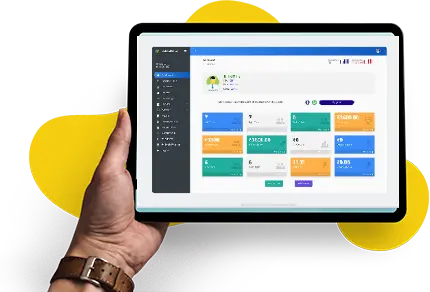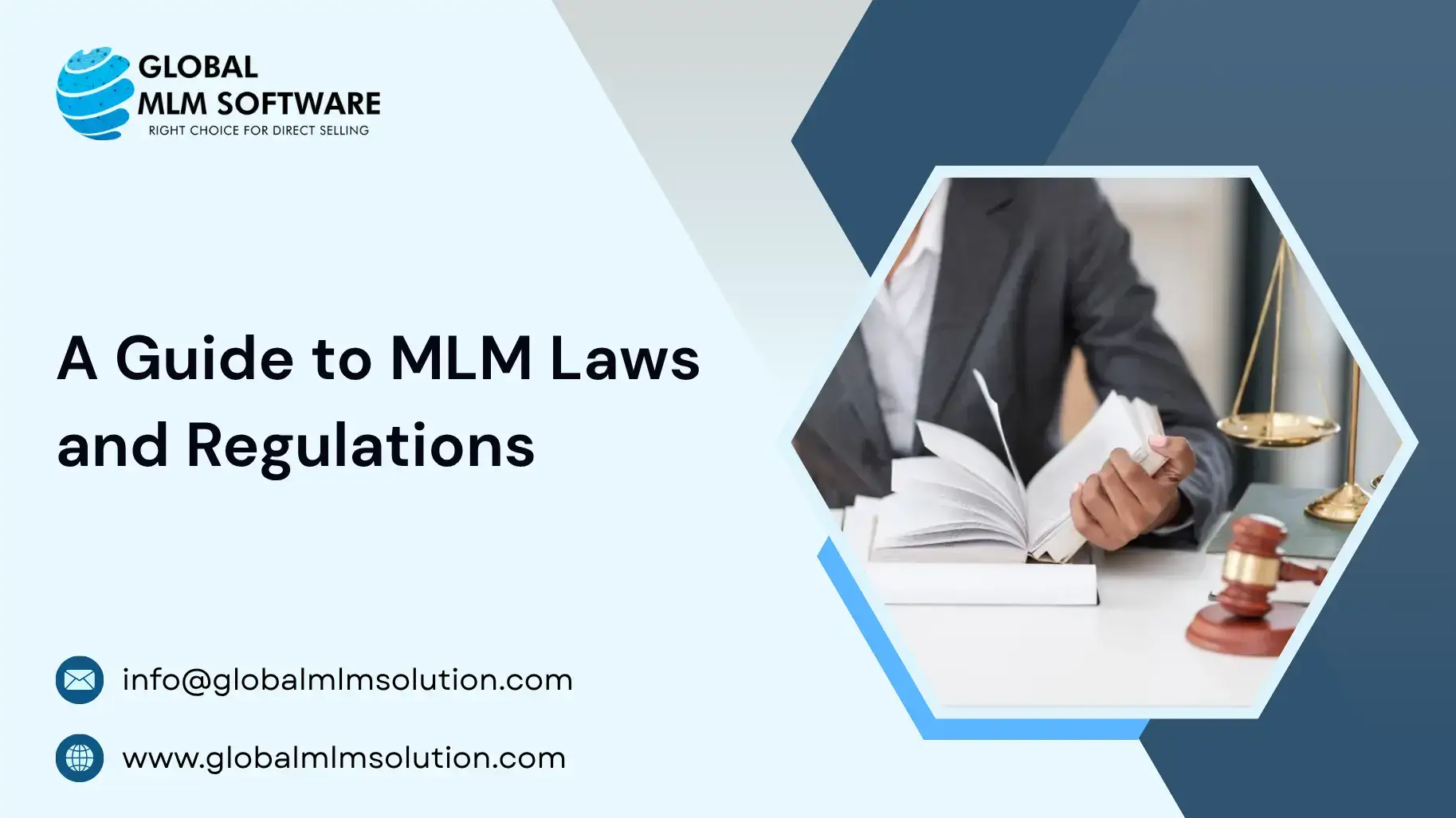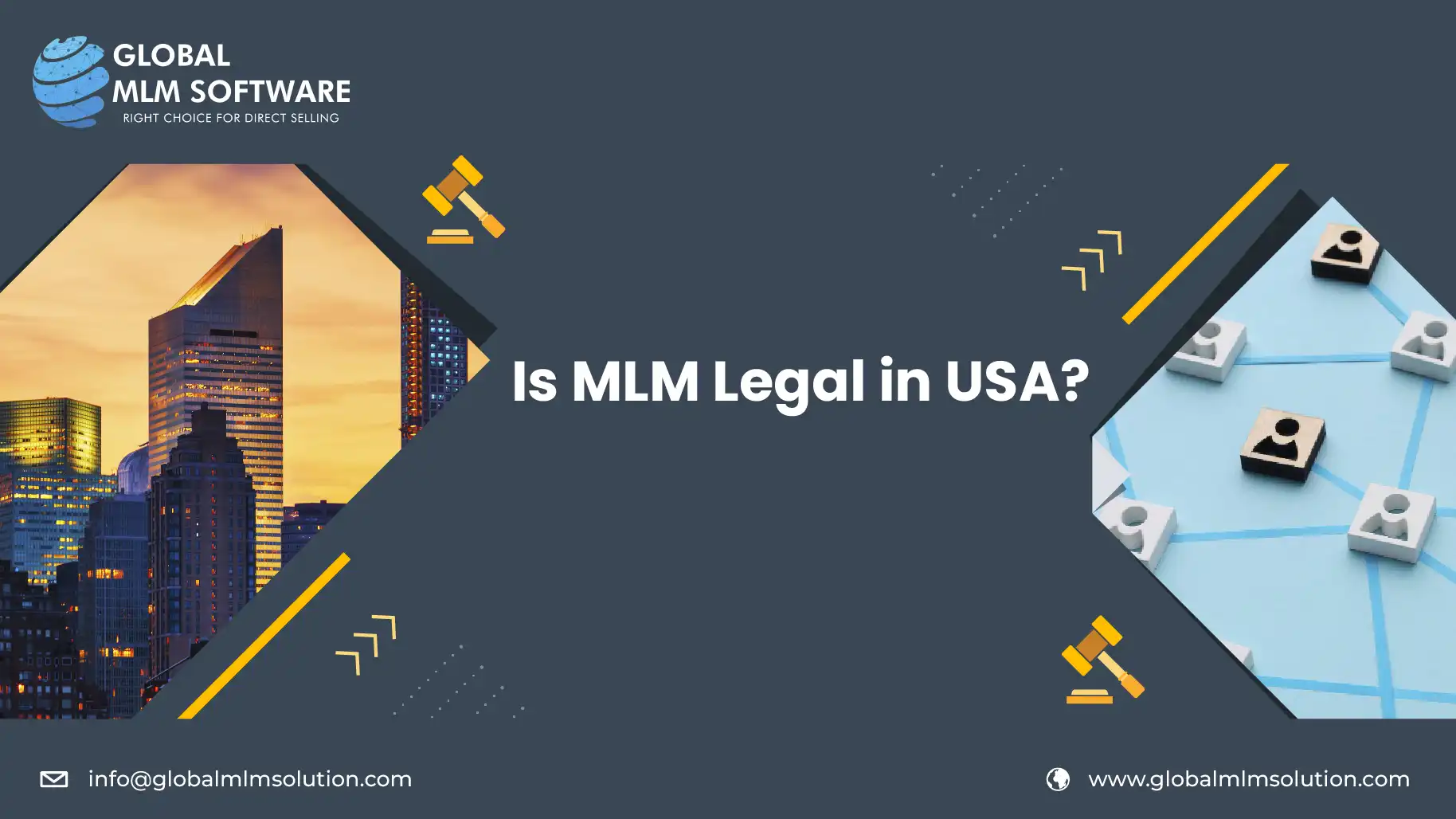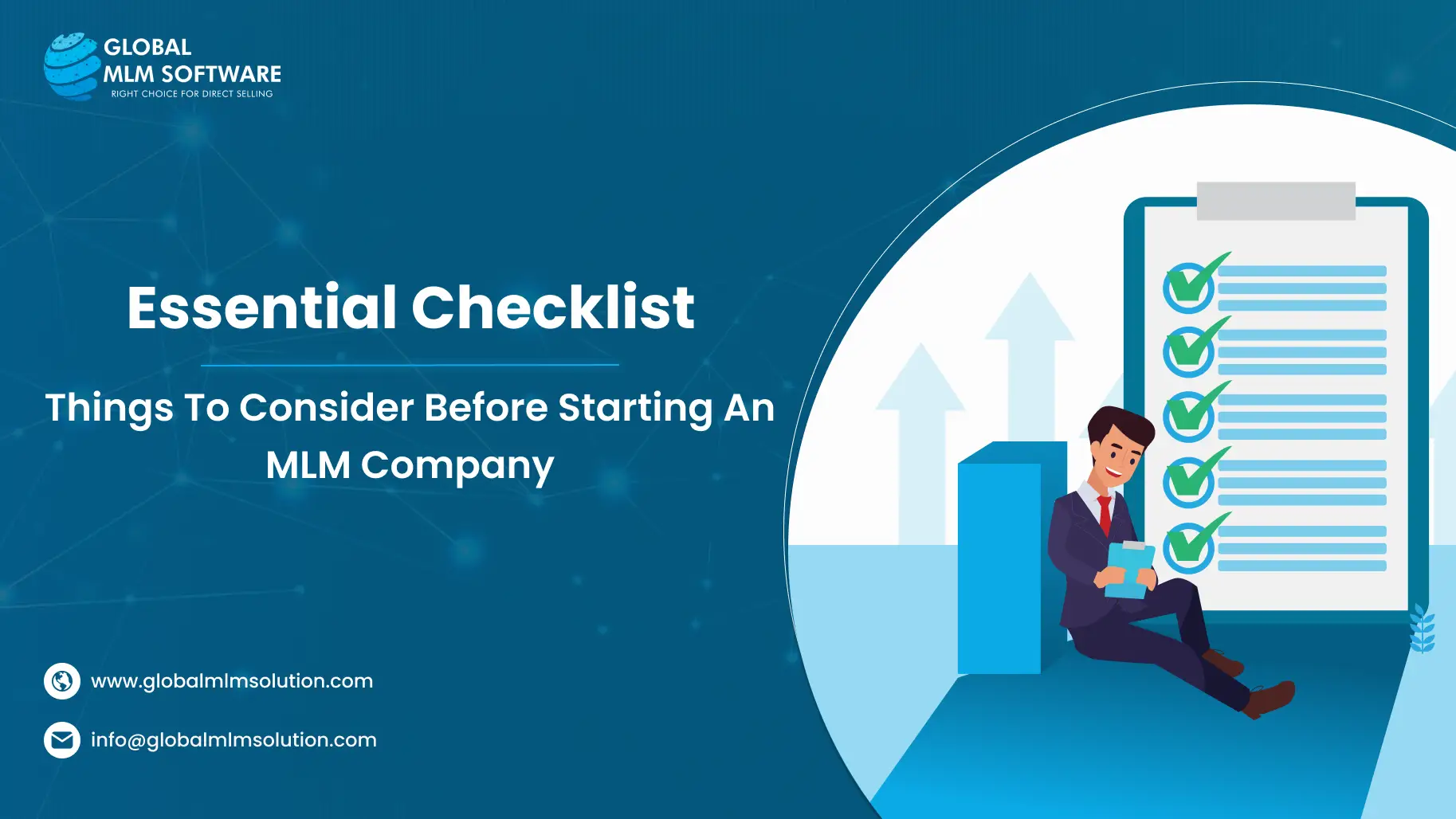Starting an MLM business and scaling it while navigating through rough regulatory terrain can be challenging at times. However, these regulations are placed to keep legitimate MLM businesses and their customers safe.
Under these regulations, MLM businesses need to make compliance efforts. One such effort is KYC (Know Your Customer). Here, one needs to conduct KYC verification in MLM business for distributors, which we will discuss in sections to come.
According to Sumsub’s Identity Fraud Report, 24% of the total fraudulent acts occur during the initial onboarding while conducting the KYC process, showcasing the need for stricter KYC measures. However, the remaining 74% occur during day-to-day activities, pointing out loose transaction monitoring and poor implementation of re-KYC measures.
Keeping the overall importance into consideration, we will explain how you can avoid lapses during the initial onboarding and ensure implementation of tighter post-KYC efforts.
This Article Contains:
What is KYC Verification in MLM?
KYC verification in multi-level marketing refers to the process of verifying the identity of recruits before onboarding them as distributors. In the United States, every distributor’s ID proof (Social Security Number, Tax Identification Number, driver’s license) and address proof are required to be collected and verified to ensure that it’s not risky to onboard a distributor.
At least 55% of businesses in the United States claim to have received fake or forged physical documents in 2023, which shows that implementing KYC measures is not an option.
In case the KYC verification can’t be completed for the reasons mentioned below, you must not onboard the distributor:
Fail to submit documents, or if documents cannot be verified.
Documents have expired.
There’s a mismatch between the details provided by the distributor and available in the ID proof.
Even if you verify the documents, you must not onboard the distributors in these cases:
The distributor is under the age of eighteen.
They have already been blacklisted by the company and its subsidiaries.
Past involvement in fraudulent schemes and banned from any other financial network.
Have a criminal history (depends on the business’s risk appetite).
Terminated by other companies for non-compliance and unethical practices.
If you identify that the distributor is registered on the UNSC Sanctions List, the OFAC SDN list, or the FBI Most Wanted & Terrorist Screening Database (TSDB), you must immediately reject the application and inform the relevant regulatory authorities.
Onboarding such an individual can cause serious legal consequences, including huge penalties for breaching the sanctions.
This itself shows how important it is to know your customer in MLM industry. On this note, let’s discuss the importance in detail.
Why KYC Verification is Important in MLM Business
There are several reasons why KYC is considered essential for MLM businesses. We have clubbed them under four categories to show the importance of KYC verification in MLM business.
Ensuring Legal Compliance
KYC is the foundation of MLM compliance. By collecting and verifying the necessary documents, you align with Federal Trade Commission directives in the US.
If you operate in multiple countries and distributors sell internationally, it becomes more important, as it helps you comply with the regulatory frameworks of those countries as well.
It also acts as the base to individual distributor profiles, which helps you provide a defensible audit trail during regulatory reviews.
Preventing Fraud and Scams
When you onboard a distributor without KYC verification, your MLM business gets exposed to:
Identity fraud
Money laundering
Payout manipulation
However, placing a robust KYC framework in place minimizes the business’s vulnerability to these issues.
Document verification prevents the creation of accounts using falsified or stolen identities.
Biometric checks ensure that no distributor registers twice to manipulate commission payment, downline creation, and rank advancement.
Sanctions screening ensures that no designated terrorists join the organization to use your business as a vehicle for their criminal and terrorist activities.
Building Trust and Credibility
When a non-verified distributor infiltrates your system, the entire network of distributors and customers may suffer. Such distributors can engage in fraudulent activities during recruitment, misrepresent products, pressure customers into forced sales, and issue forged sales receipts.
If a distributor's identity differs from the details provided, identifying the culprit requires extensive scrutiny and prolonged audits. If such cases occur repeatedly, MLM businesses may lose trust and credibility in the market, leading to increased churn and reduced cash flow.
On the other hand, when the required KYC protocols are in place, it signals operational maturity and customer protection.
Protecting Financial Transactions
What’s the largest expense while running an MLM business? Paying distributors’ commission. To ensure accurate commission disbursement, KYC-enabled validation of bank accounts, tax IDs, and beneficiary details is essential.
This helps businesses minimize chargebacks, regulatory disputes, and operational overheads tied to payment errors.
KYC Verification in MLM Business: The Complete Process
Note that KYC verification in the MLM business isn’t a one-time onboarding step. It’s a firewall safeguarding your business from fraudulent acts. Therefore, it must be structured as a compliance control framework, ensuring adherence to anti-money laundering, counter-financing of terrorism, and data privacy and security regulations.
| Step | Process | Key Activities | Compliance Purpose |
|---|---|---|---|
| 1. Data Capture & Onboarding | Collect mandatory details and documents |
• Full Legal Name, DOB, Address, Tax ID, Bank Credentials • Collect niche-specific licenses (e.g., insurance license, securities license) • Upload government-issued ID, proof of residence, tax forms (W-9/W-8BEN) • Use OCR for auto-matching details & documents |
Establish legal identity, prevent fake/duplicate accounts |
| 2. Document Authentication | Validate the authenticity of submitted documents |
• Apply ML-based document validation • Use hologram/tamper detection • Cross-reference with government registries |
Detect forged/counterfeit documents, ensure legitimacy |
| 3. Watchlist & Sanctions Screening | Screen applicants against global & local lists |
Check against: • OFAC SDN List • UNSC Sanctions List • FinCEN advisories • EU Consolidated List • Regional lists |
Block sanctioned/high-risk individuals, ensure AML/CFT compliance |
| 4. Risk Scoring | Classify applicants based on risk level |
• Flag individuals with a criminal history • Track applicants on work visas/residency permits • Use dynamic scoring models |
Differentiate standard vs. high-risk applicants |
| 5. Approval & Controlled Onboarding | Assign ID and secure data storage |
• Provide unique distributor ID • Encrypt data under GDPR/CCPA standards • Apply role-based access control • For high-risk: request secondary ID, video KYC, and income proofs |
Ensure controlled access, prevent laundering, and secure payouts |
| 6. Post-KYC Monitoring & Re-Verification | Ongoing surveillance and periodic updates |
• Track unusual payout patterns, bulk recruiting, and abnormal sales • Conduct annual re-KYC for expired/changed documents • Update sanctions list checks |
Maintain ongoing compliance, detect suspicious activity early |
We’ll provide you with the base that you can tailor as per your MLM business niche, hiring process, and geo-specific laws.
Step 1: Data Capture and Onboarding
First, design a KYC form that collects all mandatory information:
Full Legal Name
Date of Birth
Residential Address
Tax ID
Banking Credentials
If your business niche requires additional licenses, collect those as well. For instance, if your business sells insurance products, collect a valid state insurance license number. Similarly, if the company deals in financial advisory services, collecting the securities license details is necessary.
The collected details must be supported by relevant documents such as government-issued photo ID, proof of residence, and tax forms (W-9/W-8BEN).
You must implement digital onboarding modules where the system automatically matches the details and documents provided using OCR (optical character recognition). If there’s any mismatch, the system must generate an alert, and the KYC analyst can take action accordingly.
Step 2: Document Authentication
Once the details are provided and the documents match, you need to perform forensic checks on the documents. With machine learning algorithms, you can validate submitted documents. In addition to those, you can use hologram detection and tamper recognition to identify forged or counterfeit documents.
To ensure foolproof compliance, it’s also advisable to conduct a cross-reference with government registries and authoritative databases to confirm the legitimacy of the document.
Step 3: Watchlist and Sanctions Screening
Along with document validation, it’s also essential to screen prospects against widely accepted lists:
OFAC SDN List
UNSC Sanctions List
FinCEN advisories
EU Consolidated List
Other regional lists
If the individuals are found in these lists, reject onboarding immediately to avoid exposure to fraud, reputation damage, and penalties. The business must also inform the regulatory authorities regarding the instance as part of compliance.
You should prepare audit-ready logs of screening activities, detection, and reporting.
Step 4: Risk Scoring
Risk scoring is usually not required for MLM businesses. When information gets matched, documents get verified, and sanctions screening is done, you can onboard individuals. However, some of these individuals can be risky to onboard in comparison to others.
For instance, a person who has a criminal record, but the charges are not relevant to your business activities. You can onboard that person, but they should be considered high-risk individuals.
Another example is an individual who is on a work visa and not a citizen of the country yet. They can be placed in the high-risk category, too.
Step 5: Approval and Controlled Onboarding
After a prospect clears the KYC verification process, you can assign them a unique identity number, exclusive to your MLM system. It is similar to an employee ID, but provided to distributors.
For the data storage, ensure all the information is placed under GDPR/CCPA-compliant encryption with controlled access (role-based access).
It’s also suggested to conduct additional checks for high-risk applicants, such as requesting secondary government-issued documents, video KYC, collecting salary slips or bank statements to verify income sources, and validating that payouts are not being funneled for money laundering.
Step 6: Post-KYC Monitoring and Re-Verification
After you onboard the distributor, the primary job’s done. However, you have to keep track of customer activities, such as any abnormal payout patterns, bulk recruiting, or unusual selling stats.
Periodic re-KYC, preferably yearly, is also required to update expired documents and confirm ongoing legitimacy.
Challenges and Solutions of Implementing KYC in MLM Businesses
Implementing KYC practices in MLM businesses is not without hurdles, as compliance demands often clash with scalability and distributor experience.
By identifying common challenges and applying structured solutions, companies can balance regulatory obligations with operational efficiency.
High Volume of Distributor Onboarding
Challenge: Onboarding distributors doesn’t follow a steady pattern. Some days, there won’t be any hiring, and on other days, you’ll be overwhelmed with the huge number.
Solution: Automate the complete KYC verification process that can handle an increase in the number of distributors as you scale. Global MLM Software allows digital storage of distributors’ data. You can request the distributor to upload ID proof and address proof. Your compliance team can check the details without requiring them to ask distributors for offline submissions.
Verification of Identity and Documentation
Challenge: It’s possible that recruits submit fraudulent documents or engage in identity theft, which may go overlooked when checked manually.
Solution: Implementing an AI-driven document authentication system to scan and verify documentation, such as checking fonts, holograms, microprints, and data consistency.
One Distributor, Multiple Accounts
Challenge: What if the distributor becomes its own downline and receives a commission on product sales, as well as an additional commission by being its own upline? That happens when a single distributor creates multiple accounts with their own identity and conducts fraudulent acts.
Solution: Create a centralized, global database so that even if a distributor tries to join again from a different location, through a different upline, or using another ID proof, one can identify the same person by going through different details such as name, birthdate, and address proof. If it appears that the persona already exists in the database, you can conduct additional checks, such as requesting secondary ID proof and verifying their identity.
Cross-Border Regulatory Differences
Challenge: KYC verification requirements change with the change in jurisdiction. Global MLM businesses need to ensure compliance with the KYC requirements of each country where they operate, which gets more and more complicated as you grow across multiple nations.
Solution: Rather than addressing the KYC requirements of different countries separately, create an integrated framework adaptable to multiple jurisdictions. As and when the business scales, you can update this framework with additional checks specific to new regions, rather than creating a separate framework for it.
Data Privacy and Security Concerns
Challenge: KYC verification in the MLM business requires collecting sensitive data, such as personally identifiable information and address proof. There’s always a risk of breaches, causing non-compliance with data privacy laws.
Solution: Adopt 256-AES, an end-to-end encrypted data storage option, with role-based access control, where the information is shared only on a “need-to-know” basis. Also, make sure that the data privacy aligns with the global privacy framework.
Cost and Resource Constraints
Challenge: When your business builds an in-house KYC system, it can be resource-intensive, particularly for smaller and mid-sized MLM businesses.
Solution: You can partner with a third-party RegTech services provider, who can build an MLM KYC framework, implement it at various checkpoints, and execute the process on your behalf. You can also have a separate arrangement where physical KYC is required. This helps you reduce upfront infrastructure costs while giving you access to experts in the field.
Resistance from Distributors
Challenge: It’s expected to face resistance from distributors, as it’s an additional task for them. Some distributors might not be comfortable sharing personal details and ID proof.
Solution: You have to let go of a few distributors who are not ready to share the required details. For others who perceive KYC as intrusive or burdensome, you can make things easier for them. You can implement a mobile-friendly verification system with a user-friendly process. It will reduce distributors’ efforts, minimizing friction and improving adoption.
What are the Best Practices for KYC in MLM Businesses?
For MLM businesses, KYC best practices are not just about compliance but about keeping operations consistent and fraud-free. Below are the core areas where businesses should focus to make their KYC process reliable.
Standardized KYC Verification Procedures
As we discussed in the previous section, having a unified KYC verification system across different jurisdictions is the best approach to counter regulatory differences. But, there’s more benefit than this when you standardize KYC verification:
It ensures that every distributor goes through the same level of verification, regardless of what products they purchase, so no high-risk individual misses the watch.
When the procedure is standardized, different documents will align as well, making them audit-ready.
When the KYC verification process is fragmented, i.e., different checks at different checkpoints, some gaps can be used to exploit the business.
Digital KYC and Automation
It’s obvious that digital implementation and automation will benefit KYC verification in the MLM business in terms of accuracy, speed, and cost efficiency, but let’s go through the points on how it actually happens on the ground.
A KYC analyst might overlook important details while doing manual checks, leading to the onboarding of high-risk distributors, sanctioned individuals, or already existing distributors.
When you switch to automation, machine-learning models speed up the tasks by scanning and verifying documents without requiring human intervention. Manual checks will be limited to alerts generated by the system that require human decision-making.
When automation is implemented, the compliance team can redirect their time from checks to higher-value activities such as investigating red flags, resolving onboarding queries, and meeting reporting requirements. This reduces the MLM business’s operational costs associated with duplicate or manual tasks.
Regular Training for Compliance Teams
Compliance risks will evolve with changing regulations and new fraud techniques. Thus, your business, KYC verification, and employees handling KYC activities need to evolve, too. One way to do that is by providing training.
Regular training ensures that KYC verification remains aligned with the updated company policy, reflecting amendments in the FTC guidelines, AML/CFT laws, GDPR changes, etc.
It provides employees’ knowledge regarding emerging KYC scams, ensuring that they stay extra careful while handling the process.
Periodic KYC Audits and Reviews
When you first implemented your KYC verification process, you were sure about its integrity and effectiveness. However, with time, it is common to expect some lapses, detect gaps or loopholes, and vulnerabilities. Therefore, scheduled KYC audits are essential to avoid regulatory scrutiny and to timely implement corrective measures. Let’s check its advantages in detail:
Ensuring that ongoing compliance KYC verification matches the updated global standards.
When gaps and loopholes are identified, you can fill those before they affect your compliance efforts further.
It also helps to ensure system integrity and keep the data safe.
Common Mistakes in KYC Implementation
Even when your policies are top-notch, resources are high-end, and efforts are at peak, mistakes can still occur. By anticipating these common mistakes in advance, your business can address them even before they occur:
Ensure that no form is partially filled and ID scans are clear to avoid duplicate accounts, ID theft, and payout fraud.
Inform the distributor if the ID expiry is within three months, and request the newly authorized ID under the re-KYC process.
Even if you enter a jurisdiction with loose KYC laws, still implement the stringent checks to avoid issues later at the time of legal amendments.
Update KYC records in real-time. Whenever a distributor's address, tax details, or bank account changes, request the distributor to submit the new document before releasing the payout.
Always be transparent to distributors as to why you are requesting details, so they don’t see it as a hurdle but a duty towards building a financially safe environment.
Conclusion
KYC acts as the first level of defense in your MLM business, acting against fraudulent acts, identity theft, and exploitation of your business.
You must implement the measures with utmost seriousness, such as implementing tech at all the steps for accurate inspection, training employees to develop a proactive approach, and making no compromises for short-sighted gains.
When your KYC system is robust across jurisdictions, you attract more distributors, gain customers’ trust, and keep regulatory authorities in confidence.
FAQs
1. How does technology streamline KYC verification in MLM businesses?
Technology can streamline KYC verification in the MLM business by automating ID scans, detecting forged or fake documents, and generating alerts.
2. What documents are required for KYC in MLM?
Generally, government-issued photo ID and address proof are required. When there’s a suspicion, secondary ID proof should be requested as well.
3. How often should KYC be updated in MLM businesses?
KYC documents should be updated annually in the MLM business. However, if any of the information is changed or the previously submitted document has expired, it is essential to add the new document in real time.
Disclaimer: Global MLM Software does not endorse any companies or products mentioned in this article. The content is derived from publicly available resources and does not favor any specific organizations, individuals or products.








